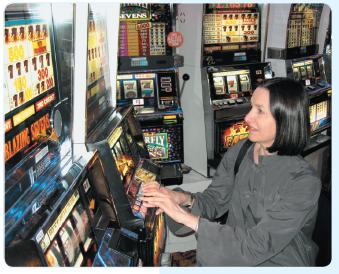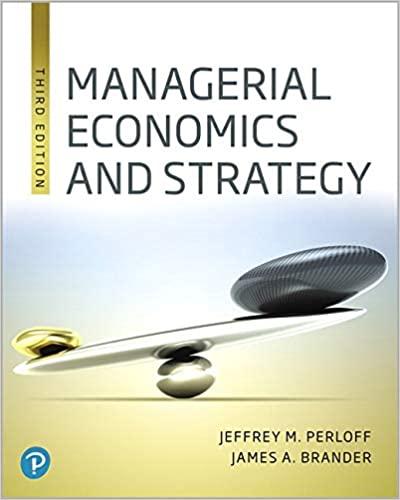Based on the information in the Mini-Case Gambling, provide at least three reasons why many risk averse
Question:
Based on the information in the Mini-Case “Gambling,” provide at least three reasons why many risk averse people gamble in casinos.
Gambling
Most people say that they don’t like bearing risk. Consistent with such statements, most consumers purchase insurance such as car insurance, homeowner’s insurance, medical insurance, and other forms of insurance that reduce the risks they face. But many of these same people gamble.
According to one estimate, global gaming revenues were $137.9 billion in 2018. Over half of the countries in the world have lotteries. Not only do many people gamble, but they also make unfair bets, in which the expected value of the gamble is negative. That is, if they play the game repeatedly, they are likely to lose money in the long run. For example, the British government keeps half of the total amount bet on its lottery, and governmentrun lotteries in other countries are similar. Legal gambling casinos have a house edge that varies from game to game. In U.S. casinos, the house edge for roulette is 5.5%, so players lose 5.5% of all money bet.
According to a Wall Street Journal study, internet gamblers win money on 30% of the days they play, but only 11% of these gamblers were in the black over a two-year period. Of the most frequent 10% of bettors, 95% lost money. The big winners in internet gambling are the companies that run the gambling sites.
Why do people take unfair bets? Some people gamble because they are risk preferring or because they have a compulsion to gamble.9 However, neither of these observations is likely to explain noncompulsive gambling by most people who exhibit risk-averse behavior in the other aspects of their lives (such as buying insurance). Risk-averse people may make unfair bets because they get pleasure from participating in the game or because they falsely believe that the gamble favors them.
The first explanation is that gambling provides entertainment as well as risk. Risk-averse people insure their property, such as their homes, because they do not want to bear the risk of theft, flooding, and fire. However, these same people may play poker or bet on horse races because they get enough pleasure from playing those games to put up with the financial risk and the expected loss. Many people definitely like games of chance. One survey found that 65% of Americans say that they engage in games of chance even when the games involve no money or only trivial sums. That is, they play because they enjoy the games. The anticipation of possibly winning and the satisfaction and excitement arising from a win generate greater benefits than the negative feelings associated with a loss.
Instead, or in addition, people may gamble because they make mistakes.10 Either people do not know the true probabilities or they cannot properly calculate expected values, so they do not realize they are participating in an unfair bet. And some gamblers are simply overconfident: They overestimate their likelihood of winning.

Step by Step Answer:

Managerial Economics And Strategy
ISBN: 9780134899701
3rd Edition
Authors: Jeffrey M. Perloff, James A. Brander





